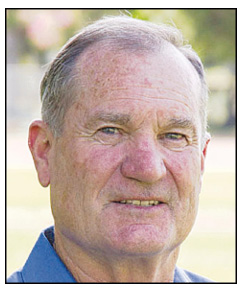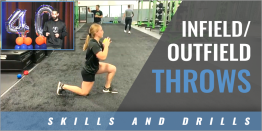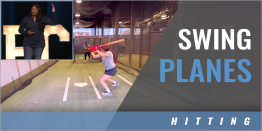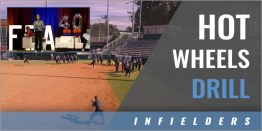| It's The Same Game, But Rules Can Vary |
| By: John Bennett - Longtime Umpire
Originally Published in: Fastpitch Delivery Provided by: NFCA Leaving a base before the pitch is released When a base runner leaves her base before the pitch is released, in NCAA it is a delayed dead ball and the umpires allow the play to continue. At the end of the play, they give the defensive coach the option of the play or nullify the entire play and call the violator out. This allows, for example, the defense to accept the double play, if that is the result of the play. In all other codes, a dead ball is called immediately and all play stops. The violator is called out and the batter returns to bat with the same count she had before the pitch. Overrunning first base with ball back in circle Batter-runners often overrun first base, especially on infield hits. When they do, they may return to first base with no jeopardy to be called out. However, once the ball is returned to the circle and in possession of the pitcher, things change. If the batter-runner overruns first base, starts back toward first and then attempts to advance to second, she is called out immediately. This is true in all codes except NCAA, which allows the batter-runner to start heading back toward first and then attempt to advance to second if she sees the defense is not covering second. She can do this as long as she stays within the six-foot extended base line and has not retouched first. Interference by batter-runner In all codes except NCAA, batter-runner interference is an immediate dead ball and the batter is declared out. In NCAA, it is a delayed dead ball and the umpires allow the play to continue. At the end of the play, the defense has the option of taking the result of the play or the batter being called out and all play nullified. Runner interference as fielder attempts to catch a fair fly ball There is a distinction in the rule books between interference on a fair fly ball and foul fly ball. When the batted ball is in fair territory at the time of interference, both the batter and runner are out in USA Softball and NCAA play. For high school and USSSA, it is the same as interference on a ground ball - the runner is out and the batter is awarded first base. Runner interference as fielder attempts to catch a foul fly ball When the interference is on a foul ball, USA Softball, NCAA and USSSA are similar - the batter and runner are both out. However, in NCAA there must be physical contact for interference to be called on a runner when the fielder would have been catching a foul ball. In high school, the runner is out and a foul ball is charged to the batter. The only exception is on a bunt attempt with two strikes, the batter is also out. Interference to a fielder attempting to field a deflected ball This play happens often enough that it is important to understand the differences in the rules. A batted ball goes straight to the pitcher, who attempts to field it, but instead it deflects off her glove and toward another fielder. The runner, seeing where the ball is hit, advances to her next base as the infielder charges the deflected ball. Contact ensues between the fielder and the runner. Is this interference on the runner and should she be called out? No, states USA Softball, NCAA and USSSA - unless the runner intentionally interfered. This is true whether the batted ball deflected off the pitcher or any fielder. The philosophy is that the runner is not expected to be watching the entire play, as her main responsibility is to advance. We cannot penalize the offense for the defensive's inability to initially field the ball. High school's rule is slightly different. Interference should be called only if it deflected off the pitcher, whether the contact was intentional or unintentional. It is not interference if the batted ball is deflected off any other fielder, unless the runner intentionally interferes. Fielder obstruction There has been a difference in the definition of obstruction between NCAA and the other codes since the NCAA issued its first rule book in 1997. They do agree that it is obstruction if the runner is impeded, unless the fielder has possession of ball or is in the act of fielding a batted ball. NCAA adds one more caveat - it is not obstruction if the fielder is in the act of catching a thrown ball. USSSA defines obstruction is any action which hinders a runner or changes pattern of play. However, the difference in NCAA is likely to change for 2018. The NCAA is considering a rule change to comply with the other codes - the fielder must have possession of ball or be in the act of fielding a batted ball. The rule's proposed language has some additional wording which could create a big difference and one which coaches should be aware. It states that it is obstruction if a defensive player is blocking the whole base/plate or base path without the ball and/or the runner does not have a clear path to the base/ plate. In the other codes, the fielder may block the base without the ball and it is not obstruction until this act of blocking impedes or hinders the runner. It may seem like a small difference, but it is not. If the "and/or" in the NCAA's proposed rule is interpreted to mean that the mere act of blocking the whole base/plate is obstruction, then the umpire will make the call as soon as the fielder does that, regardless of the effect on the runner. I will address this is a future column once we get an interpretation. Obstruction on a runner rounding or returning to a base The NCAA is unique with a rule that allows base awards if the same fielder commits obstruction more than once during the game on a runner who is rounding or returning to a base, uses force to push a runner off a base or positions herself in the baserunner's line of vision to see the release of the pitch. It is an one-base award to the runner if the same fielder violates the same rule more than once. And, for certain other obstructions, subsequent violation by the same player may result in an one-base award. USA Softball, high school, and USSSA do not have this rule. Why so many differences? It has always bothered me a little that we have so many rule differences in softball when it is basically the same game, whether high school, travel ball, or college. I agree there must be some differences based on the level of competition and other unique circumstances that require a slight change in some rules for some organizations. But these differences do exist, so I hope this column is informative and allows coaches to keep up with some of the rules which are not the same for your organization and what they might rule during a college TV game.
John Bennett has nearly three decades of umpiring experience in fastpitch softball, working high school, travel and college games. He umpired at the NAM National Championship Series from 1998-2003, and has umpired in National Pro Fastpitch, dating back to when it was known as Women's Pro Fastpitch and the Women's Professional Softball League. Bennett has umpired Pac-12 and Big West conference contests for many years, earning standing as a crew chief, and has worked many Division I Regional and Super Regional games. He worked the 2013 and 2014 Divisionll National Championship Series in Virginia. The CCSUA Chairperson of Education and Training, Bennett has served on the NCAA Softball Rules Committee as the active official and as chair ofthe NFCA Rules and Officials Committee. |








